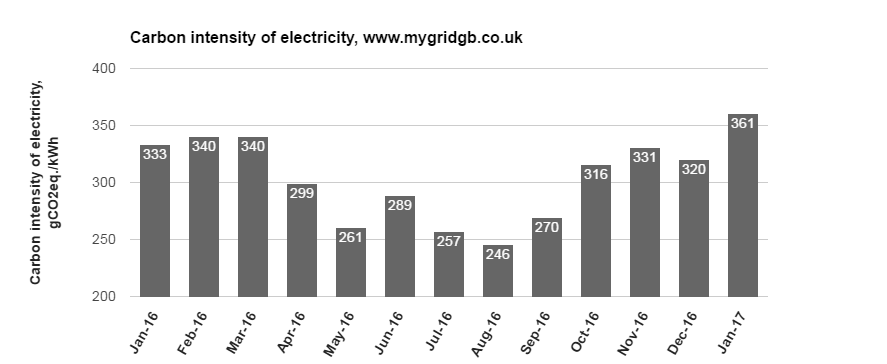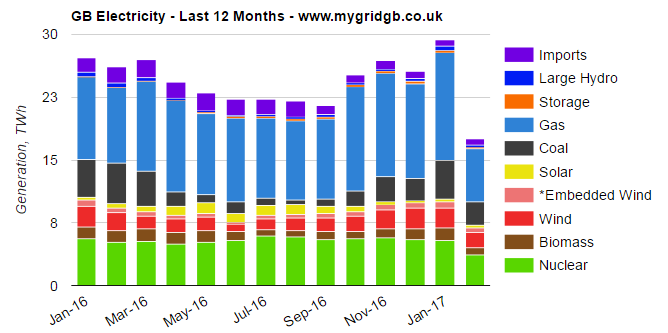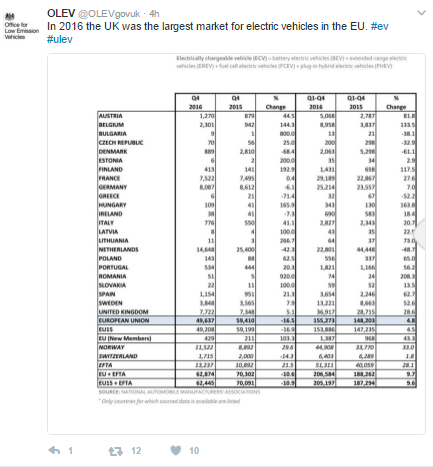January 2017 saw a rise in carbon emissions from the same period in 2016. The total amount of carbon rose by 17%. Adjusted for the higher demand in 2017, emissions rose by 8% for every unit of electricity generated. Consistent rises in carbon emissions will represent a Government policy unable to meet the obligations of the Paris climate deal.

January 2017 saw a rise in carbon emissions from the same period in 2016. The total amount of carbon rose by 17%. Adjusted for the higher demand in 2017, emissions rose by 8% for every unit of electricity generated. Consistent rises in carbon emissions will represent a Government policy unable to meet the obligations of the Paris climate deal.
This is shown on the chart below. In January 2016, emissions were 333 g/kWh versus 361 g/kWh in January 2017. The Committee on Climate Change puts emissions targets at 50-100 g/kWh by 2030. Great Britain is a long way off that target.

High emissions are caused by gas and coal which emit more greenhouse gases than our 2030 target permits. The use of fossil fuels jumped by 21% whilst the generation from low carbon sources fell:
- Nuclear generation in January 2017 was 3.6% lower than in 2016
- Wind and solar were fairly consistent year on year.
- Imports from France fell by over 50% due to continued outages of the interconnecting cable to France.
Electricity from various sources is shown in the chart below.

Although there was negligible change in low carbon generation between 2017 and 2016, there was increased demand. Increased demand for electricity in the UK means that, quite simply, there is more pressure for more low carbon generators to be built- be that solar, wind, nuclear, hydro or low carbon imports.
The evidence is that the demand for energy will be increasing. The Office for Low Emission Vehicles tweeted today that the UK was the largest market for electric vehicles in the EU. With second hand Nissan Leaf’s listed for less than £6,000 on Autotrader, financial penalties for high emission vehicles and new EV models due to be released in 2017 the electrification of cars looks to be irreversible.

Electrification of transport means one thing – more demand. It is therefore essential that the Government supports more investment in low-carbon generation and learn the lessons from January 2017. Otherwise we will get further from our targets.
